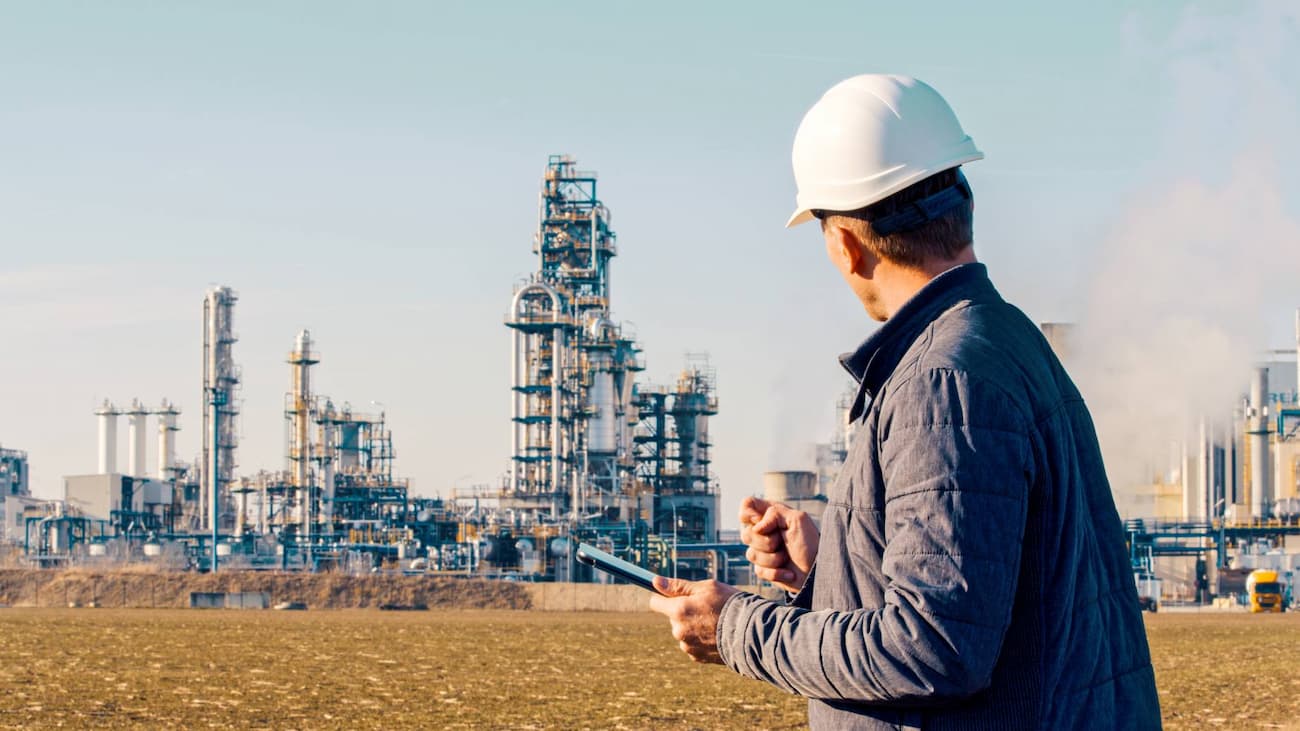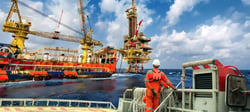Petroleum engineers wear several different hats. They work with teams of other petrochemical engineers and specialists to locate natural gas and oil reserves. Petroleum engineers also develop efficient and cost-effective methods to extract those energy sources, so people can heat their homes and drive their cars, among other things. Petroleum engineers use their specialized geological, mathematics, and petrochemical engineering knowledge to perform these diverse scientific and engineering tasks day in and day out.
In petroleum engineer jobs, the engineers often facilitate the installation and operation of equipment in oil and gas fields, on offshore rigs, or mines. Other responsibilities include determining the economic cost-benefit of extraction and drilling at sites, recommends and guides best practice petrochemical engineering work, and makes forecasts and plans for extraction and drilling.
Petrochemical engineers also must lead maintenance of equipment and collaborate intensively with other engineering and technical staff to execute extraction tasks. For instance, petroleum engineers need to work closely with scientists and geologists to design extraction methods that prevent creating pollution and earthquakes, since the oil or gas is usually located deep within underlying rock formations.
Given the continued importance of petroleum engineering work within the energy sector, there is no shortage of opportunities for petrochemical engineers. Career specializations within petrochemical engineering include drilling engineers, completions engineers, reservoir engineers and production engineers.
Apply now for a job as petroleum engineer!
Common petroleum engineer responsibilities
A petroleum engineer is responsible for performing a range of important engineering tasks. Responsibilities may include:
- Analyzing geological formations to identify reserves, determine extraction methods and related costs, benefits, and risks;
- Testing and surveying areas to determine extraction possibilities;
- Inspecting, monitoring, testing, detecting, and solving an array of petrochemical engineering challenges, such as determining the most efficient way to access gas under a shale bed;
- Using computer models to determine extraction approaches and equipment needed;
- Guiding and overseeing ongoing extraction operations;
- Installing, inspecting, and maintaining extraction equipment;
- Refining extraction methods as needed;
- Managing the disposal of extraction equipment;
- Planning and deploying functional petrochemical engineering processes according to plan from start to finish;
- Collaborating with diverse engineers and specialist team members, as well as customers on petrochemical engineering projects;
- Supervising and training team members on projects;
- Collecting data or writing reports related to petrochemical engineering projects;
- Preparing detailed documentation and specifications for the purchase of petrochemical engineering equipment and materials;
- Delivering results in line with agreed petroleum engineering project timelines and budgets;
- Ensuring that all petrochemical engineering outputs are following relevant environmental and safety requirements, codes, and certifications.
Qualifications for petroleum engineers
Petroleum engineers should have at least a Bachelor’s degree in Petroleum Engineering, Chemical Engineering, Mechanical Engineering, or a related technical field. An advanced degree is advantageous. In some countries, an engineering license may also be required.
Additional supporting skills and experience include:
- 3-5 years of petroleum engineering experience;
- Solid understanding of petrochemical substances and manufacturing;
- Excellent applied chemistry, math, and analytical skills;
- Proficiency in using diverse computer operating system hardware and software;
- Strong verbal and written communication skills to be able to work easily with other engineers, managers, and team members;
- Project and team management skills;
- Able and willing to travel regularly, and work in harsh conditions, including lifting heavy equipment as needed.




